Vitamin C For Skin: Benefits, How To Use, And Side Effects
C-ing is believing: Discover how this powerful natural antioxidant can boost and balance your unique skin type.

Image: Shutterstock
Our skin needs constant care as it faces challenges like wrinkles, sun damage, stress, and signs of aging. All these issues can impact the overall skin appearance. The good news is, you may use vitamin C for skin-related issues. This antioxidant brightens the skin, prevents free radical damage, protects your skin, and improves overall skin health. Read on to know the benefits of vitamin C and how you can use it.
In This Article
Benefits Of Using Vitamin C For Your Skin
| Type of Skin Damage | Cause | Skin Structure Affected | Evidence of Protection by Vitamin C |
|---|---|---|---|
| Sunburn | Acute and excessive UV exposure. | Cell death of all skin cells, with associated inflammation. | Improving skin vitamin C and vitamin E levels can improve resistance to UV exposure. |
| Photoaging, oxidant-induced damage | Chronic UV overexposure, cigarette smoking. | Damaged collagen and elastin matrix, thinning of the epidermal layer. | Decreased signs of aging with higher fruit and vegetable intake. Protection inferred from studies with acute UV exposure. |
| Hyperpigmentation | Chronic UV exposure and environmental stresses. | Excessive pigment formation and propagation of melanocytes in the epidermis. | Nutrition studies showing improved skin color with higher fruit and vegetable intake. |
| Wrinkle formation | Natural aging, oxidative stress, UV exposure, smoking, medical treatments. | Dermal layer changes, deterioration of collagen, and elastic fibers. | Lessening of wrinkle depth following vitamin C supplementation. Increased collagen formation by fibroblasts in cell culture. |
| Skin sagging | Natural aging, oxidative stress damage, extreme weight loss. | Loss of elastin and collagen fibers, thinning of skin layers, loss of muscle tone. | Improved skin tightness in individuals with higher fruit and vegetable intake. |
| Loss of color | Natural aging, UV exposure, illness. | Thinning of skin layers, loss of melanocytes or decreased melanin formation, loss of vasculature in dermis. | Improved skin tone with high fruit and vegetable intake. |
| Surface roughness | Chemical and UV exposure, physical abrasion, allergy, and inflammation. | Stratum corneum, loss of skin moisture barrier function. | Vitamin C enhances production of barrier lipids in cell culture. |
| Dry skin | Medications, illness, extreme temperature, low humidity, and wind exposure. | Stratum corneum, loss of skin barrier lipids, and natural moisturizing factor. | Vitamin C enhances production of barrier lipids in cell culture. |
| Excessive scar formation, generation of keloids | Ineffective wound healing. | Fibroblast function, collagen, and elastin formation. | Supplementation improves wound healing, prevents keloid formation in vivo, enhances collagen formation by fibroblasts in vitro. |
| Poor wound healing, thickening rough skin | Vitamin C deficiency. | All skin cell functions, collagen formation. | Direct association Vitamin C deficiency prevents wound healing. |
| Inflammatory skin lesions | Allergic and auto-inflammation. | Skin barrier integrity, underlying inflammation, and swelling. | Nutrition support, decreased levels associated with loss of barrier lipid ceramide. |
The skin acts as a barrier against dirt, pollution, harsh weather, etc. It has two layers – the outer epidermis layer and the inner dermal layer. The epidermal layer offers barrier function while the dermal layer takes care of skin strength and elasticity. The dermal layer provides nutrition to the epidermis. Skin contains high concentrations of vitamin C, which stimulates collagen synthesis and offers antioxidant protection against UV rays (1). Here are the many benefits of vitamin C for your skin.
- May Help Stimulate Collagen: Vitamin C stimulates collagen formation and is essential for balanced collagen production (1). A healthy collagen supply improves complexion.
- Has Antioxidant Activity: Vitamin C is a powerful antioxidant. It eliminates oxidants caused by pollutants and UV exposure (1). The outer layer of the skin has concentrated amounts of vitamin C that protect the skin from oxidants. What sets this vitamin apart is that it provides enzymatic and non-enzymatic defenses against oxidants. Vitamin C also has synergistic effects with vitamin E.
- May Help Inhibit Hyperpigmentation: Increased melanin production results in dark patches on the skin. Vitamin C can help tackle this issue as some of its derivatives, like magnesium phosphate ascorbyl, can decrease melanin synthesis (1). This may help treat melasma or age spots.
- May Promote Wound Healing: Vitamin C can increase the proliferation and migration of dermal fibroblasts in the skin. These fibroblasts help heal wounds effectively (1). Both topical application and increased intake of vitamin C are effective in stimulating wound healing. Research shows that supplementation of vitamin C, paired with vitamin E, can improve wound healing in children with extensive burns. Increased vitamin C levels in smokers, abstaining smokers, and non-smokers had also improved the rate of wound healing. Topical application of vitamin C prevented permanent scars in Asians. (1).
- May Slow Down Skin Aging: Research shows that intake of adequate fruits and vegetables or related supplements may improve skin elasticity and color. It may also reduce skin wrinkles and roughness (1). Taking fruits and vegetables may also enhance vitamin C levels and improve skin health. UV damage can lead to early signs of skin aging like hyperpigmentation, wrinkles, reduced skin elasticity, and roughness. Vitamin C may help prevent this damage. Excess exposure to sun rays may also increase the risk of skin cancer and sunburns. However, vitamin C, paired with vitamin E, may effectively reduce skin inflammation and injuries caused by UV rays.
- Dry Skin: Dry skin can be caused due to an improper or indequate skin care regimen age, illness, certain medications, environmental changes, and humidity. The skin’s barrier layer contains about 40-50% of lipids, and their deficiency may lead to dry skin. Vitamin C may increase the production of lipids.
- Roughness: Creams containing vitamin C may decrease skin roughness.
- Wrinkles: Wrinkles are a result of skin aging. They may be caused prematurely by oxidants from smoking, UV exposure, and other factors. Vitamin C can help counter these.
- May Reduce Skin Inflammation: Skin inflammation occurs in conditions like atopic dermatitis, psoriasis, and acne. Its symptoms are pain, dryness, and itching. Research indicates that vitamin C has anti-inflammatory properties and may help manage acne and rosacea (2), (3). It prevents post-inflammatory hyperpigmentation.
Understanding the benefits of vitamin C benefits is sure to convince you to add this power ingredient to your daily skin care routine. You can apply topical creams and serums that contain vitamin C or add vitamin C foods to your diet. Consuming vitamin C supplements may also help improve skin health.
Key Takeaways
- Vitamin C has numerous skin advantages. It helps increase collagen, inhibits hyperpigmentation, improves wound healing, and reduces premature skin aging.
- Scurvy is a vitamin C deficiency condition characterized by fragile skin and impaired wound healing. It can also thicken the skin’s outer layer and induce subcutaneous bleeding.
- Applying topical creams, serums, and patches to the skin can help balance the vitamin C levels.
- However, vitamin C might cause stinging, erythema, or dryness in some cases.
Effects Of Vitamin C Deficiency
Vitamin C deficiency is called scurvy, which is characterized by fragile skin and impaired wound healing. Excess exposure to pollutants or UV rays may lead to low levels of vitamin C in the epidermal layer (4). Research shows that people with aged or photo-damaged skin have low vitamin C levels (1). Its deficiency may hamper wound healing, thicken the outermost layer of the skin, and cause subcutaneous bleeding.
How To Use Vitamin C For The Skin

Incorporating vitamin C into your skincare regimen is crucial since it is one of the important vitamins for glowing skin. The vitamin C levels in the skin can be balanced by applying topical creams, serums, and patches. But the effectiveness of vitamin C topical creams depends on their pH level (which should be below 3.5 to 4). Vitamin C should be added in the form of ascorbic acid for effective skin penetration (1), (2). Most serums contain active vitamin C and are colorless, but they can get oxidized upon exposure to light. Apply topical creams in regular 8-hour gaps for best results.
The most stable forms of vitamin C include:
- Magnesium Ascorbyl Phosphate (MAP): It reduces water loss in the skin. It is photoprotective and stimulates collagen production.
- Ascorbyl 6 Palmitate: It is a free-radical scavenger that forms (or breaks down to) vitamin C.
- Disodium Isostearyl2-0 L-ascorbyl Phosphate (VCP-IS-Na): It enhances permeability in the epidermal layer.
Ascorbic acid sulfate and Tetraisopalmitoyl ascorbic acid are two other stable forms of vitamin C that are currently under research.
However, the effectiveness of topical vitamin C creams depends on the amount of vitamin C in the skin. If there is a balanced amount of vitamin C in the skin, it may not absorb the same from topical creams. Hence, intake of vitamin C foods and supplements may be more effective. This may prevent certain skin diseases like atopic dermatitis and herpes zoster (5).
 Quick Tip
Quick TipHow To Store Vitamin C Serum
Proper storage of vitamin C serum is essential to maintain its potency and effectiveness. First, store the serum in a cool, dark place away from direct sunlight and heat. Exposure to light and warmth can degrade the serum and reduce its efficacy. Keeping it in its original dark or opaque bottle also helps shield it from light exposure.
In addition, tightly seal the bottle after each use to prevent air from entering, which can oxidize the serum and diminish its benefits. Refrigerating the serum helps prolong its shelf life and maintains its stability.
These practices ensure that your vitamin C serum remains potent and effective when you use it for skin care.
While vitamin C is clearly beneficial to the skin, it also may cause certain side effects.
Side Effects Of Vitamin C
Vitamin C topical creams are mostly considered safe. But they also may cause stinging, erythema, or dryness in some cases. These issues can be remedied with a moisturizer. Consult a dermatologist if any irritation occurs. Be careful while applying vitamin C around your eyes as it may cause burning.
 Quick Tip
Quick TipAs with any nutritional supplement, there is a recommended dosage for vitamin C intake. Scroll on to know in detail.
Dosage For Vitamin C
The German, Austrian, and Swiss nutrition societies recommend an intake of about 95 mg/day of vitamin C for adult women (6). Similarly, 105 mg/day is recommended for pregnant women from the fourth month and 125 mg/day for lactating women. Girls aged 1 to under 15 years have increasing requirements ranging from 20 to 85 mg/day. Female adolescents aged 15 to 19 years are advised to take 90 mg/day.
Vitamin C is considered one of the best antioxidants for skin and provides many benefits to your skin. Incorporating vitamin C into your skincare routine may boost collagen production, slow down skin aging, reduce inflammation, and combat dryness. Research suggests that low levels of vitamin C may lead to scurvy, a disorder characterized by skin issues. To ensure this does not happen, you can use vitamin C for your skin in the form of topical creams or through diet. However, vitamin C creams may cause dryness or stinging. Consult a doctor if irritated skin develops.
Frequently Asked Questions
Can you use vitamin C on your face every day?
Yes, vitamin C can be used once or twice per day. All we need to do is cleanse, tone, use vitamin C serum, and then moisturize.
Does vitamin C help reduce under-eye circles?
Besides the benefits mentioned above, vitamin C is a powerful collagen booster. Hence, using it at bedtime will significantly enhance the fragile under-eye area and conceal discoloration (1).
Vitamin C is a well-known powerful antioxidant that reduces the appearance of fine lines to brighten the skin. Watch this video and learn from expert dermatologist Dr. Davin Lim explaining the many ways how vitamin C benefits the skin.
References
Articles on StyleCraze are backed by verified information from peer-reviewed and academic research papers, reputed organizations, research institutions, and medical associations to ensure accuracy and relevance. Read our editorial policy to learn more.
- The Roles of Vitamin C in Skin Health
https://www.ncbi.nlm.nih.gov/pmc/articles/PMC5579659/ - Vitamin C in dermatology
https://www.ncbi.nlm.nih.gov/pmc/articles/PMC3673383/ - Vitamin C and Skin
https://www.longdom.org/open-access/vitamin-c-and-skin-2155-9554-1000444.pdf - Vitamin C and Skin Health
https://lpi.oregonstate.edu/mic/health-disease/skin-health/vitamin-C - Role of Vitamin C in Skin Diseases
https://www.frontiersin.org/journals/physiology/articles/10.3389/fphys.2018.00819/full - New Reference Values for Vitamin C Intake
https://www.karger.com/Article/Pdf/434757
Read full bio of Dr. Priya Gill
Read full bio of Anjali Sayee
Read full bio of Ramona Sinha
Read full bio of Swathi E






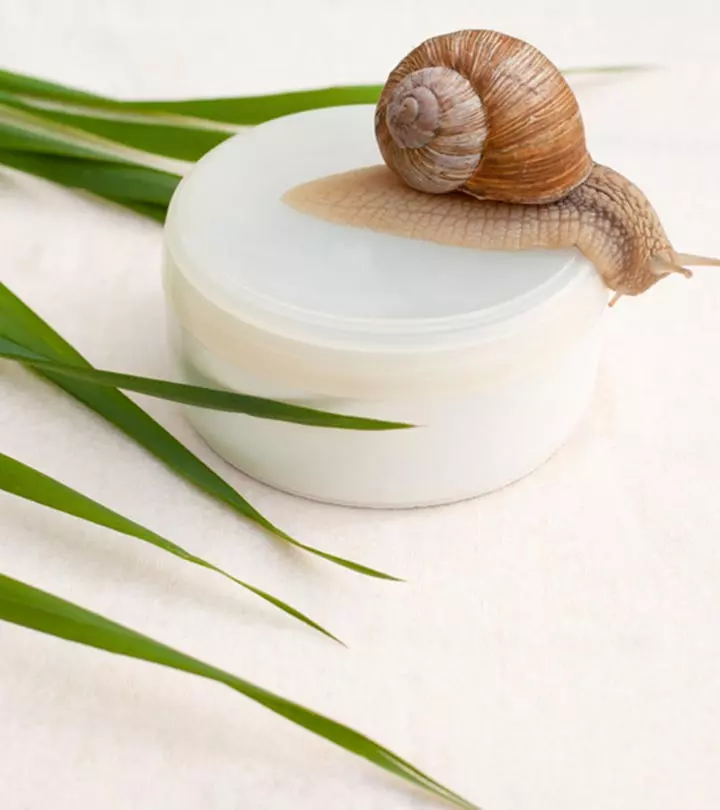

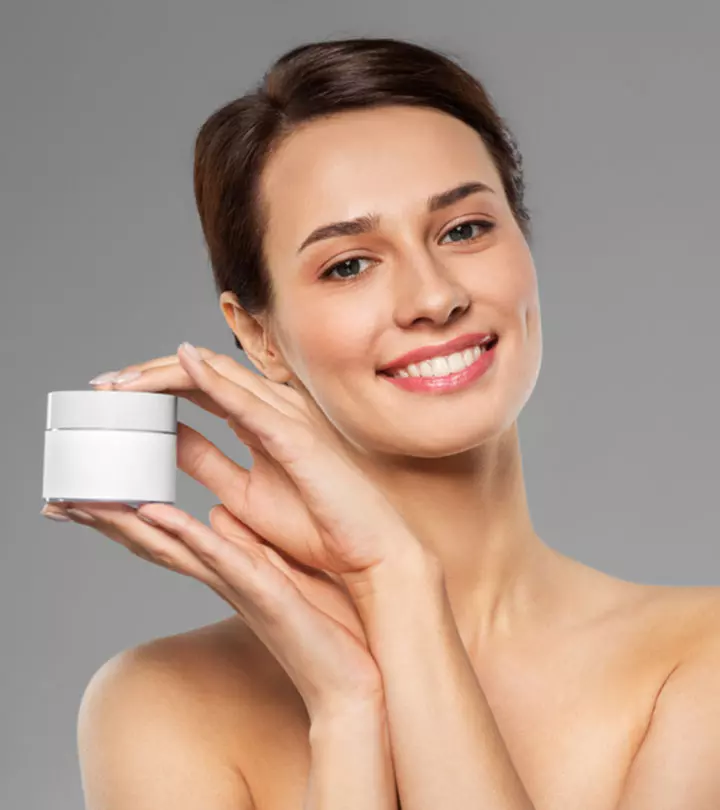



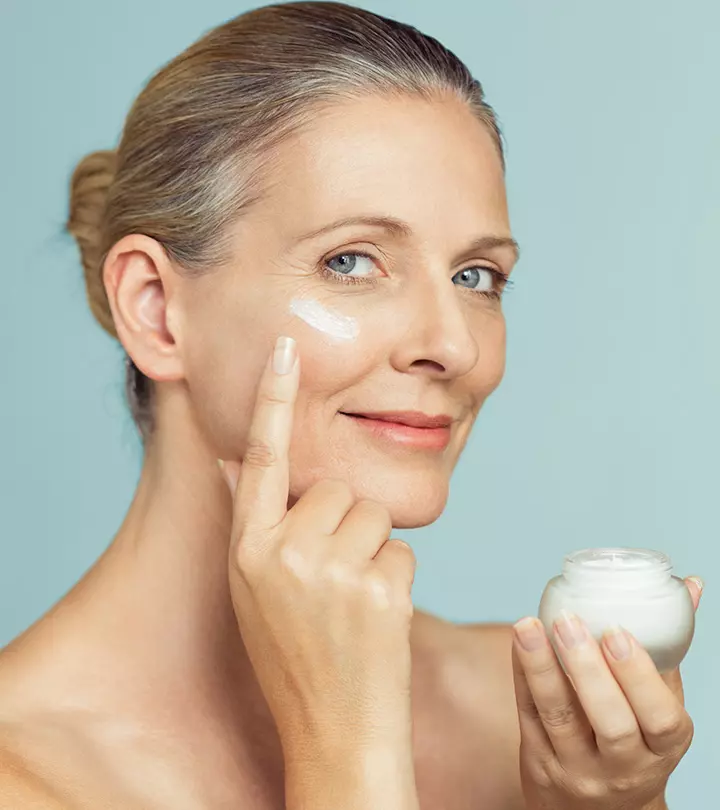


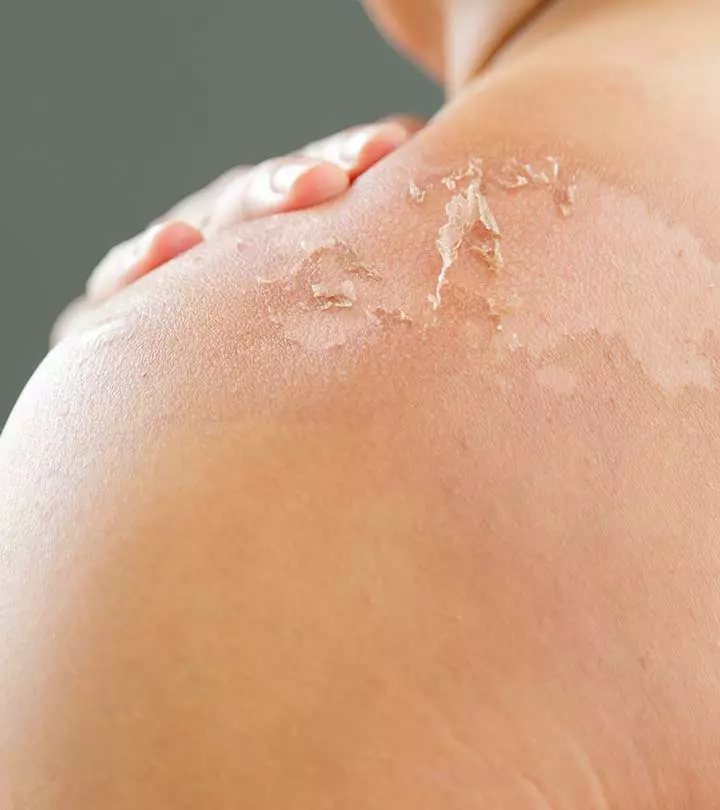

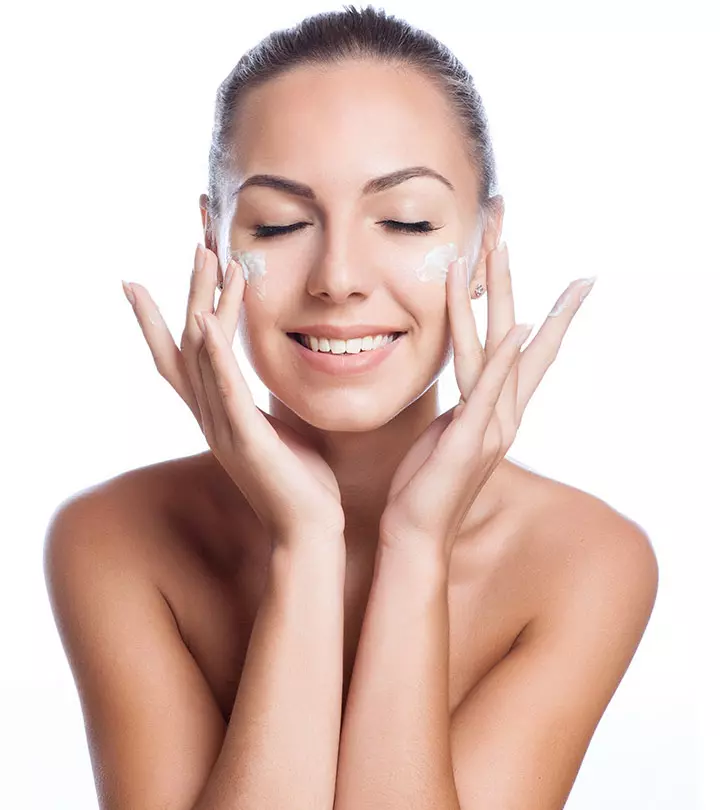
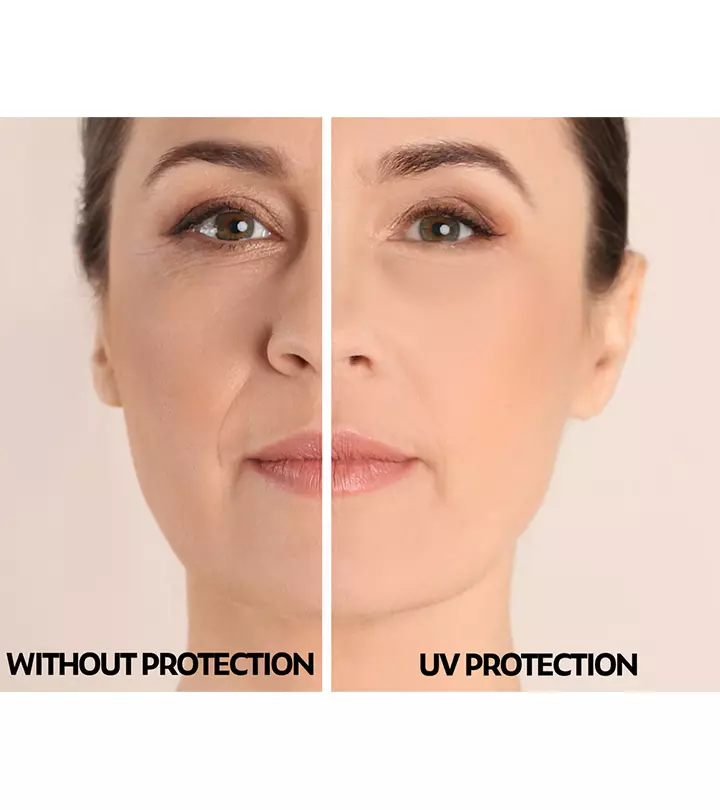
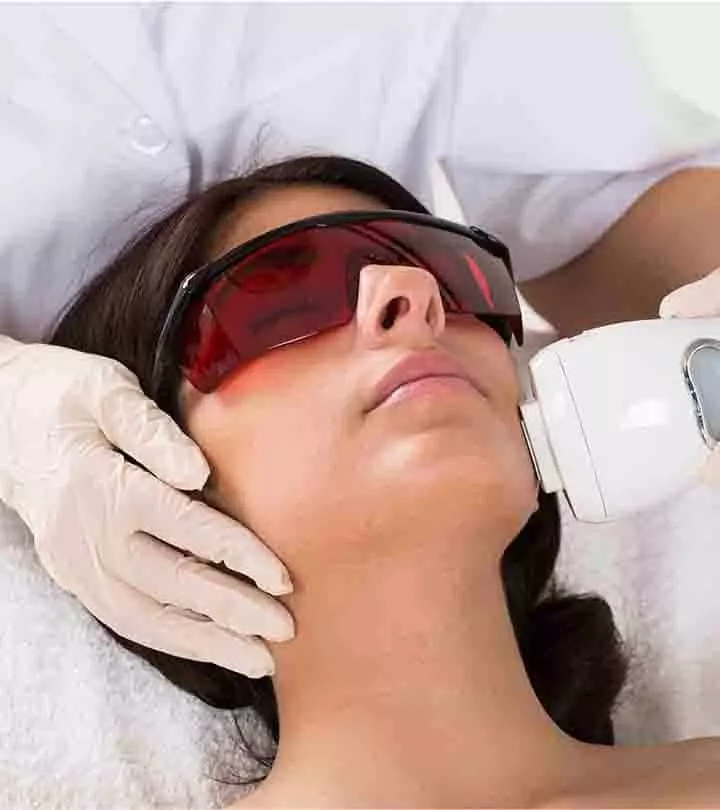






Community Experiences
Join the conversation and become a part of our empowering community! Share your stories, experiences, and insights to connect with other beauty, lifestyle, and health enthusiasts.